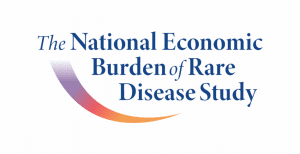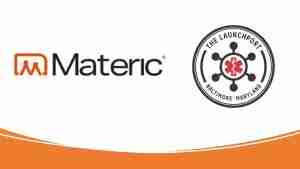
Photo Credit: Julia Reihs
Nucleate Baltimore Empowers the Next Generation of BioHealth Capital Region Leaders
There has never been a better time to be a life science entrepreneur than the present. If there’s one important take-home message from recent years, the search to understand and find therapeutics for COVID-19 has emphasized the importance of science and medicine. It has reinvigorated life science funding and investment.
With many startups emerging within the BioHealth Capital Region (BHCR), there is a need to provide resources and support to better set life science entrepreneurs for success. We previously covered several incubators in the region that are beneficial for biohealth startup companies. These incubators provide the right mix of services, amenities, and mentorship programs that help young companies navigate a complex process, surmount hurdles, and succeed. This is especially important as recent early-stage companies and startups have delved into newer technology realms such as artificial intelligence, computational methods, etc., each of which has its own unique path to success. Thus, as BHCR continues to expand, more programs are needed to support entrepreneurs and the next generation of life science leaders.
Enter Nucleate, the student-run non-profit organization developing future leaders in the life sciences industry by educating current academic trainees. It provides free programs that democratize biotech education and helps identify and support talent in life sciences and biotech. They also work to initiate new intellectual communities, build bridges within the biotech ecosystem and increase the quality and quantity of life science technologies spinning out in academic labs. Most importantly, Nucleate is building a community that focuses on outreach, diversity, equity, and inclusion to make biotech/life science accessible.

Nucleate was founded in Boston in 2018 within the Harvard Biotech Club and has since developed into a global organization. It currently operates in ten cities (Boston, New Haven, New York, Baltimore, Raleigh-Durham, Houston, San Diego, Los Angeles, the Bay Area, and Philadelphia) with over 500 student volunteers from 70 academic institutes and is actively expanding to other regions in the US and beyond!
Nucleate’s Baltimore chapter has been highly active in recent months. It recently hosted one of Nucleate’s flagship initiatives- the Activator Program, a five-tier program providing a rigorous educational experience to aspiring, early-stage entrepreneurs (most of whom are current academic trainees with early-stage companies). Selected participants undergo a rigorous curriculum comprising 12 weeks of bi-weekly workshops facilitated by program mentors and field experts, culminating in a pitch event. They showcase their companies to industry stakeholders. This typically includes a polished pitch deck, written business plan, fundraising, and legal strategy.
The Activator program provides many benefits to early-stage entrepreneurs, especially in terms of resources, mentorship, feedback, and network building. In addition, it helps entrepreneurs and leaders focus on current big challenges about their technologies and prepare for the next milestones/inflection points.
The program model can be better categorized as follows:
- TEAM FORMATION: Align scientists and business students interested in launching a venture and facilitate mutual matching.
- STRATEGY SUPPORT:
- Industry Mentors – Long-term guidance from experienced entrepreneurs & biotech executives.
- Legal Strategy – Navigate the IP and corporate law landscapes with guidance from legal experts.
- Clinical Partners –Work with clinical residents to explore unmet clinical needs and interview KOLs.
- HANDS-ON WORKSHOP: Iterate on critical components of a science-first business thesis through deep-dive workshops with industry experts.
- PROFESSIONAL DEVELOPMENT: Enable networking with faculty, biotech executives, first-time founders, and VCs.
- FINAL PITCH: Teams present to an audience composed of program mentors, renowned academics, industry veterans, and top-tier VC judges.
The Activator 2022 program provided a rigorous educational experience to early-stage companies, culminating in a final pitch presentation competition hosted on May 17th, 2022 in Downtown Baltimore. Most of the participating teams featured highly impressive projects in life sciences that are in varying stages of equity funding, prototype development and testing, and regulatory approval. In addition, they covered a variety of topics across 3 fields: Diagnostics, Platform, and Devices.
Here is a snapshot of the ground-breaking discoveries and technologies brought forward by this year’s participating teams:
Abacus Bio (Platform Product)
Team Members: Jeffrey Ruffolo, Timothy Aikin
Deep learning platform for rapid generation of next-generation antibody therapeutics.
The monoclonal antibody therapeutics market is highly profitable, with $127 billion in sales in 2021 alone, and 16 of the top drugs individually made over $2.5 billion in revenue. However, antibody drug discovery and development is still a lengthy, costly, and risky process. Only those products which meet the highest efficacy and clinical safety standards are approved by the US FDA. This success rate can be more efficient if predicting which of those candidates are likely to give you good drugs or filtering out those antibody candidates which are likely to fail earlier on in the development pipeline. Abacus Bio has attempted to fill the gap in the industry by developing a sequence and structure software that employs deep learning for the rapid generation of next-generation antibody therapeutics.
Prompt Diagnostics (Diagnostics)
Team Members: Alexander Trick, Shira Rieke
Clinical Partner: Rohan Verma
Portable sample-to-answer platform for rapid, low-cost detection of disease biomarkers and infectious pathogens.
In the US, 12 million sexually transmitted infections (STI) cases are diagnosed each year, with related lifetime healthcare costs hitting $1 billion for the top three STI pathogens (Gonorrhea, Chlamydia, Trichomonas) alone. The current problem is not lack of effective care. It’s a lack of access to rapid testing that can inform these decisions at the point of care. This leads to inconsistent treatment across the clinic, with some clinics reporting up to 87% of symptomatic patients that are receiving unnecessary or ineffective antibiotics; some clinics report up to 86% of asymptomatic patients that don’t receive the treatment during their first visit and go undertreated, and for those patients that don’t receive treatment, up to 58% may not come back for the subsequent visit to receive care once they have received those results. The need of the hour is a rapid point of care test that can guide treatment in a time-efficient manner.
Prompt Diagnostic has developed an affordable, flexible, highly efficient point-of-care platform that integrates gold standard PCR to test for a wide variety of pathogens and accurately deliver test results in under 20 minutes. This will enable patients to be diagnosed within their first clinic visit and receive the appropriate treatment in a timely manner, thus reducing disease risk and chances of transmitting the disease. Clinical prototypes of Prompt Diagnostics have been successfully tested on 200 clinical samples in Baltimore STI clinics and Kampala, Uganda, in collaboration with Infectious Disease Institute.
Hypermelt (Diagnostics)
Team Members: Christine O’Keefe, Jon Ilani
Sensitive microfluidics platform for detection of extremely rare DNA from non-invasively collected samples.
Late detection of diseases and lack of suitable early-stage screening leads to less effective treatments and higher mortality rates for thousands of people in the US. As seen in cancers such as ovarian cancer, early cancer detection increases a patient’s survival rate. However, searching for a few cancerous cells among billions of healthy cells is akin to searching for needles in haystacks and is a major limitation of current diagnostic standards.
HyperMelt – or high-density profiling and enumeration by melt – has developed a digital, microfluidics-based platform that allows researchers to manipulate and analyze minute volumes of fluid. By separating blood samples into smaller and smaller chunks, the device makes it easier to individualize and analyze low amounts of “unhealthy” DNA. This makes it easier to identify disease-carrying DNA and separate it from healthy DNA and allows for the detection of extremely rare DNA at the earliest possible disease stage.
HydroGene (Device)
Team Members: Robert Kruse, Tanishq Bhalla; Clinical Partner: Aryaman Gupta
Non-viral gene therapy system leveraging hydrodynamic delivery of DNA through endoscopic procedures.
Gene therapy has been proposed as a potential cure for costly and difficult-to-manage conditions. It can replace a missing or defective gene and treat the disease. Traditionally, gene therapy is delivered through the bloodstream via adeno-associated viral vectors (AAVs). However, AAVs can trigger an immune response, as many patients have preexisting antibodies that fight AAVs. Additionally, AAVs require complex and expensive bulk manufacturing systems due to their small genome.
HydroGene has developed a liver-directed non-viral gene delivery system that enables hydrodynamic delivery of DNA to hepatocytes through endoscopic procedures. Its injection device integrates into a standard endoscopy procedure, ERCP, that accesses the liver via the biliary tree and ensures patient safety throughout the procedure. The gene delivery approach is versatile and applicable to many monogenic disorders and compatible with a wide range of therapeutics, including DNA, RNA, and protein-based medicines. As it will be more cost-effective than traditional gene therapy, HydroGene will increase the accessibility of gene therapy to patients with otherwise incurable genetic conditions. The device has already shown promise in addressing Wilson’s Disease (a liver-based genetic disorder) in pig models and is now working on obtaining non-human primate data. HydroGene’s product will initially be used to treat liver disorders with known mechanisms that are poorly addressable by CRISPR and AAV technologies. Later, it hopes to expand to autoimmune diseases and cancers that lack an established gene therapy program.
PerformAb (Platform)
Team Members: Patrick Krohl, Mimi Fan
Technology to screen antibodies on the surface of yeast cells against mammalian cells expressing the target membrane.
G-Protein Coupled Receptors (GPCRs) are integral membrane proteins that detect molecules outside the cell and activate cellular responses. They encompass about 50% of all the therapeutic drug targets on the market and make up 90% of total global drug sales. The majority of the drugs targeting GPCRs are small molecules, and there are only two FDA-approved antibodies against GPCRs. Small molecules tend to produce more side effects than antibodies, making it practical to develop antibodies against GPCRs. However, most companies face hurdles in screening antibody candidates due to the high degree of non-specific binding on the antibody surface.
PerformAb has developed a patented technology that can streamline antibody screening. The process involves using antibody fragments on the surface of yeast cells against the mammalian cells overexpressing the GPCR of interest. One key feature of this platform is that the process can be monitored in real-time, so one can monitor for specific binders or non-specific antibody binding, and in about 10 days, a decision can be made whether to move forward with the antibody candidate or not. This methodology is highly versatile and can also be easly applied to other membrane-bound proteins.
—
The 2022 Activator Pitch Showcase also featured a keynote speech by Kory Bailey (Director of Relationship Development, UpSurge Baltimore), an awards ceremony, and a networking reception. Overall, Nucleate’s Activator Program has an outstanding track record. So far, their alumni of 30 companies have raised approximately $83 million in funding, received 36 awards and honors, and have created over 50 jobs so far! You can read more about Nucleate Baltimore’s chapter here.
As an attendee at the event, it was a pleasure to learn from BHCR’s next generation of leaders. BioBuzz is honored to feature Nucleate and these outstanding early-stage ventures! We hope to document their successes in the coming months. Stay tuned for more updates!
- About the Author
- Latest Posts
Nivedita recently received her Ph.D. from the University of Maryland, Baltimore in biochemistry and molecular biology and an MS in law (patent law). She is passionate about science writing and communication, and is actively involved with the Maryland biotech scene through her work with Women in Bio- Capital Region , AWIS (Baltimore Chapter) and BioBuzz.






